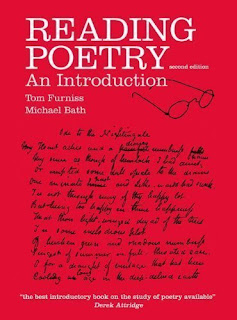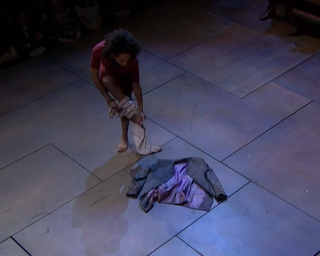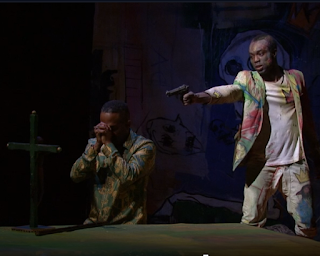Changing Interpretations Over Time: Voltaire
Over the next few weeks we are going to consider some different critical perspectives of Hamlet.
First, it is worth considering why interpretation of the same words on the page and stage have come
to be viewed so differently across the ages. There is a good explanation in one of my favourite books
on poetry:
to be viewed so differently across the ages. There is a good explanation in one of my favourite books
on poetry:
‘Different historical periods have made very different assumptions about what literature is and have consequently come up with startlingly different accounts of the ‘same’ texts...historical pluralism can be graphically illustrated by the history of critical interpretations of a text such as Hamlet.
In the four-hundred year period since it was written, critics and theatre producers have tried to solve the puzzle of Hamlet and have come up with a huge range of differering ‘solutions’. Each period has viewed the play differently, and critics within each period have disagreed over it. The actual text of the play - the words on the page or the stage - clearly does not change with each interpretation. It is, rather, the meaning of those words, sentences, speeches, actions, reactions, interactions, plots, subplots, and so on which seems to change according to how these elements and their mutual interrelations are interpreted. Of course, there is something about the text itself which allows these various readings. None of these readings would seem valid if they did not tell us something about the play and offer textual evidence to support them.
Yet these readings also tell us something about the interests of the period in which the interpretation is made and about the theoretical assumptions of the reader. All reading takes place from a certain position in relation to the text being read.
The Romantic poets inevitably interpreted Hamlet as a Romantic play and concentrated on those elements in the text which seemed to support their response. To Freud, Hamlet seemed the most compelling enactment of the Oedipus complex since Sophocles’ Oedipus Rex (c. 427-26 BCE), from which he took the name of his most famous theory.
In other words, Hamlet can generate so many different interpretations because different readers are looking for different things in its complex text. Read in different contexts with different expectations, Hamlet appears differently. There seems to be no way out of this: the continuing interest in Hamlet shows no sign of coming to an end, or of reaching a final interpretation.
Interpretation, then, becomes open-ended. This is the source of the ongoing fascination of literature and the basis of the fact that literature can continue to be taught without it becoming a predictable process of teaching by rote’ (Bath & Furniss, 2007:540-541).
So, let's start with Voltaire, an eighteenth century historian and author, and one of France's most famous writers of all time. He is well known for his involvement in the Age of Enlightenment movement. This was an intellectual movement across Europe that championed science, reason and progress.
Here's what he has to say about Hamlet:
In English, you say? Ok. "Voila!"
VOLTAIRE: from 'Dissertation sur la Tragédie', 1748
Englishmen believe in ghosts no more than the Romans did yet they take pleasure in the tragedy of Hamlet, in which the ghost of a king appears on the stage.... Far be it from me to justify everything in that tragedy; it is a vulgar and barbarous drama, which would not be tolerated by the vilest populace of France, or Italy. Hamlet becomes crazy in the second act, and his mistress becomes crazy in the third; the prince slays the father of his mistress under the pretence of killing a rat, and the heroine throws herself into the river, a grave is dug on the stage, and the grave-diggers talk quodlibets worthy of themselves, while holding skulls in their hands; Hamlet responds to their nasty vulgarities in silliness no less disgusting. In the meanwhile another of the actors conquers Poland. Hamlet, his mother, and his father-in-law, carouse on the stage; songs are sung at table; there is quarrelling, fighting, killing - one would imagine this piece to be the work of a drunken savage. But amidst all these vulgar irregularities, which to this day make the English drama so absurd and so barbarous, there are to be found in Hamlet, by a bizarrerie still greater, some sublime passages, worthy of the greatest genius. It seems as though nature had mingled in the brain of Shakespeare the greatest conceivable strength and grandeur with whatsoever witless vulgarity can devise that is lowest and most detestable.
What are the key ideas in his argument? Summarise them in your own words.
Might any still have resonance today? Why/not?
Is there a memorable, standout phrase here?





Comments
Post a Comment